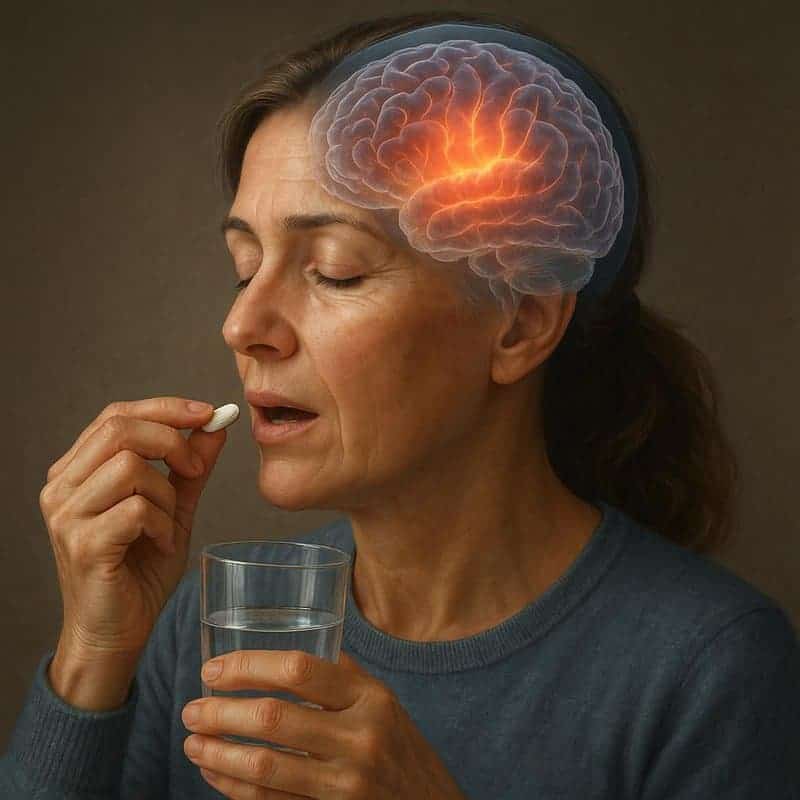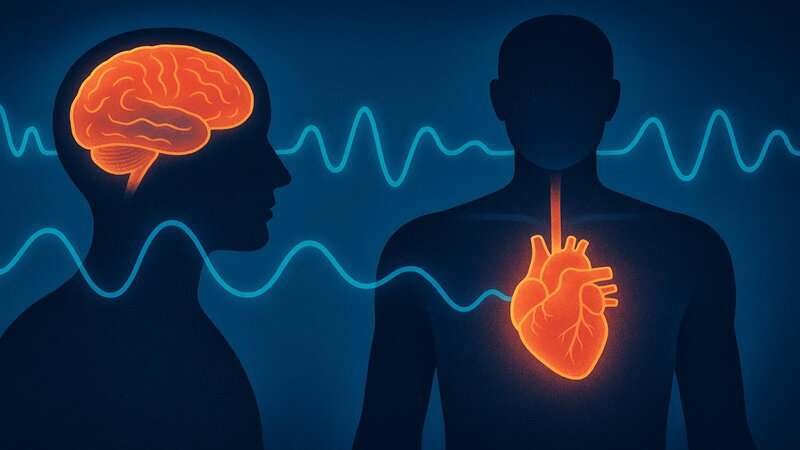The human mind is a powerful force, capable of shaping not just our thoughts and emotions but also our physical reality. Scientists have long studied the mysterious mind-body connection, uncovering remarkable ways our mental states can influence bodily health. From manifesting unusual symptoms to altering the way our bodies heal, the brain’s impact is sometimes downright strange. In this article, we’ll explore 15 of the most unusual and scientifically intriguing psychosomatic effects—revealing just how deeply your mind can affect your body.
1. Placebo Effect

The placebo effect is a fascinating demonstration of the mind’s power over the body. When individuals believe they’re receiving real treatment—like a sugar pill—they can experience genuine symptom relief or pain reduction, even though the treatment has no active ingredients. This effect has been so profound in medical research that it often leads to measurable changes in the brain and body. Learn more from Mayo Clinic.
2. Nocebo Effect

Just as positive beliefs can heal, negative expectations can harm through the nocebo effect. When people expect unpleasant side effects—like headaches or nausea—they may actually develop them, even if they’ve only taken harmless substances. This strange phenomenon shows how powerfully the mind can trigger real, negative physical symptoms based solely on belief. Source: Harvard Health
3. Psychogenic Fever

Intense stress or emotional upheaval can literally make you hot—sometimes leading to psychogenic fever. This type of fever isn’t caused by infection but by psychological distress. For instance, students may spike a fever before important exams due to anxiety alone. The mind’s response to stress can raise body temperature in surprising ways. Source: NIH
4. Broken Heart Syndrome

Sudden, intense emotional stress—like the loss of a loved one—can actually “break” your heart, at least temporarily. Broken Heart Syndrome, or Takotsubo cardiomyopathy, causes the heart muscle to weaken and mimic heart attack symptoms. This condition usually resolves, but it’s a dramatic example of how powerful emotions can have direct, physical effects on vital organs. Source: American Heart Association
5. Psychosomatic Pain

Sometimes, the mind can convert stress or emotional turmoil into very real pain in the body. This is known as psychosomatic pain. Headaches, stomachaches, and muscle tension can all arise without a clear physical cause, triggered instead by psychological factors. The pain is genuine, even if medical tests show nothing wrong. Source: Cleveland Clinic
6. Blushing

Ever felt your cheeks burn with embarrassment? Blushing is a classic example of the mind affecting the body. When you experience social anxiety or embarrassment, the brain sends signals that cause blood vessels in your face to dilate, resulting in visible redness. This involuntary reaction is a powerful reminder of how emotions can instantly alter our appearance. Source: National Library of Medicine
7. Psychogenic Seizures

Psychological stress can sometimes present as dramatic physical symptoms, including psychogenic seizures. These episodes look remarkably like epileptic seizures, with shaking or convulsions, but there’s no underlying neurological abnormality. Often associated with conversion disorder, these seizure-like events are the mind’s way of expressing deep emotional distress through the body. Proper diagnosis is essential, as these seizures require different treatment than neurological epilepsy. Source: Epilepsy Foundation
8. Hysterical Blindness

Sometimes the mind’s response to trauma or overwhelming stress can be so intense that it causes temporary blindness, even though the eyes themselves are healthy. Known as hysterical blindness or functional vision loss, this condition is a powerful example of psychological distress manifesting physically. Vision usually returns once the emotional trigger is resolved, highlighting the profound connection between mental and physical health. Source: Psychology Today
9. Phantom Limb Pain

After a limb is amputated, many people experience phantom limb pain—feeling sensations or even pain in the missing limb. This phenomenon underscores how the brain processes pain and body awareness, sometimes creating real discomfort where no physical limb exists. The mind’s complex mapping of the body can generate vivid sensations, even after amputation. Source: Johns Hopkins Medicine
10. Stress-Induced Hives

Emotional stress doesn’t just stay in the mind—it can show up on your skin as stress-induced hives. When anxiety or worry runs high, the immune system may react by producing itchy, red welts or rashes, even in the absence of allergens. This visible reaction is a clear example of how psychological tension can spark physical responses. Source: American Academy of Dermatology
11. Psychogenic Stuttering

Intense emotional trauma or stress can sometimes cause the sudden appearance of stuttering, even in people with no history of speech disorders. This condition, known as psychogenic stuttering, is triggered by psychological—not physical—factors. The speech difficulties often improve as the emotional distress is addressed. Source: National Stuttering Association
12. Muscle Weakness from Anxiety

Anxiety doesn’t just affect the mind; it can also lead to noticeable muscle weakness or fatigue. During periods of intense worry or panic, the body’s stress response can make muscles feel heavy, shaky, or even drained of strength—despite no underlying physical illness. Addressing anxiety often helps these physical symptoms fade. Source: Anxiety and Depression Association of America
13. Psychogenic Vomiting

Sometimes, psychological distress can trigger nausea or even vomiting without any physical stomach issues. Known as psychogenic vomiting, this reaction is often linked to anxiety, trauma, or overwhelming stress. The body responds to emotional turmoil by activating the digestive system in unusual ways, creating real, uncomfortable symptoms. Source: Medical News Today
14. Hair Loss from Stress

Chronic stress can have visible effects on your appearance, including unexpected hair loss. When stress hormones flood the body, they can disrupt the normal hair growth cycle, causing hair to thin or fall out in patches—a condition called telogen effluvium. This type of hair loss is often temporary but highlights the profound impact psychological stress can have on physical health. Source: American Academy of Dermatology
15. Insomnia Due to Overthinking

When the mind won’t quiet down, sleep can feel impossible. Overthinking and anxiety are common culprits behind insomnia, as racing thoughts prevent both body and brain from relaxing. This lack of rest can create a cycle of fatigue, irritability, and even more stress, showing how mental patterns disrupt crucial physical processes. Source: Sleep Foundation
Conclusion

The mind’s influence over the body is both mysterious and profound, shaping our physical experiences in ways that often defy logic. From pain and paralysis to skin reactions and sleep struggles, these phenomena highlight the intricate dance between mental and physical health. By increasing our awareness of the mind-body connection, we can better understand ourselves and seek approaches that promote true well-being. Curiosity and self-compassion are key to navigating these fascinating effects.
Disclaimer

This article is for informational purposes only and is not a substitute for professional medical advice, diagnosis, or treatment. If you’re experiencing persistent symptoms, consult a qualified healthcare provider for guidance and support. Your health matters—don’t hesitate to seek help when needed.
.article-content-img img { width: 100% }



Vielleicht interessiert es Sie:
13 Extraordinary Giants Ready to Blow Your Mind! 🌍
10 Chonky Oddities That Will Leave You Speechless! 🤯
9 Unbelievable Absolute Units That Will Leave You Speechless! 🌟
10 Colossal Creatures That Will Leave You Speechless! 🐻
12 Shocking Absolute Units You’ll Have to See! 😲
12 Epic Absolute Units That Will Challenge Your Perceptions! 🔥
Uncover the 11 Ultimate Massive Oddities That Awe! 🌍
9 Unbelievable Oddities That Redefine ‚Massive‘! 🐉💎